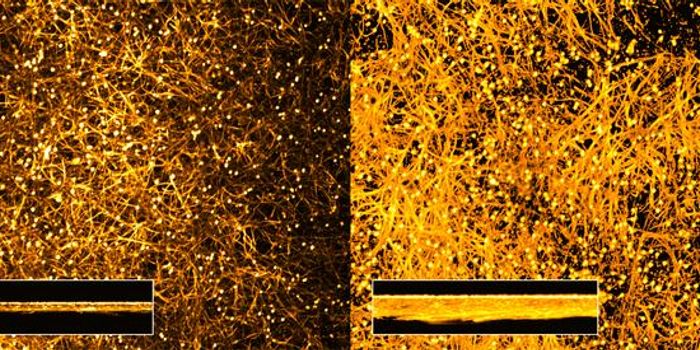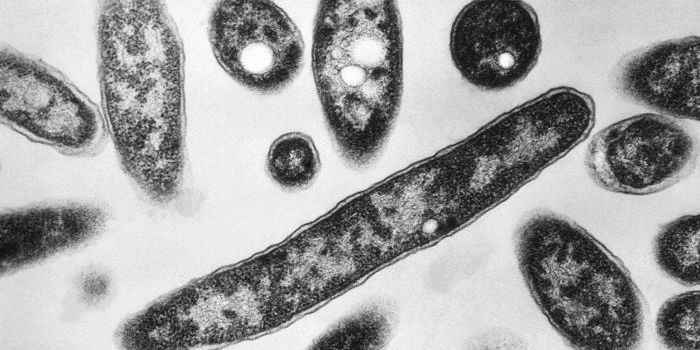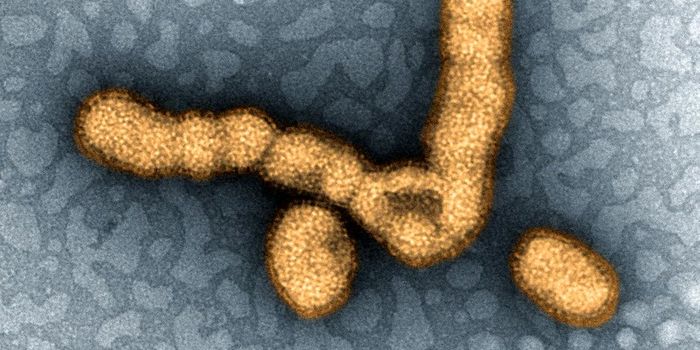Some Microbes Can't be Washed off of Apples
Do some people that buy organic apples eat the entire thing? If so, they’re doing something that’s very beneficial to their health. Recent work investigating the bacteria that call apples home - the apple microbiome - has found that organic versions carry a more diverse community of microbes, which is better for us. The core also contains about ten times as much bacteria as the rest of the fruit. The findings have been reported in Frontiers in Microbiology.
The researchers set out to learn more about one of the world’s most popular fruits might be impacting the gut microbiome, which has a powerful effect on our health. "The bacteria, fungi, and viruses in our food transiently colonize our gut. Cooking kills most of these, so raw fruit and veg are particularly important sources of gut microbes," noted the senior study author Professor Gabriele Berg of Graz University of Technology, Austria.
The study assessed conventional and organic apples that were visually similar and analyzed the various parts of the fruit - peel, flesh, stem, seeds, and the bits at the bottom called the calyx separately.
Overall, the organic and conventional apples were occupied by similar numbers of bacteria. Most bacteria were in the seeds, however, which many people probably aren't eating. "Putting together the averages for each apple component, we estimate a typical 240 gram apple contains roughly 100 million bacteria," revealed Berg. The flesh contained most of the rest of the microbes.
The organic fruit seemed to offer a better group of bacteria to the consumer. A wider variety of microbes is associated with a healthy bacterial community, which the organic apples had. The strains of bacteria that organic apples carried were also better for health than conventional apples.
"Freshly harvested, organically managed apples harbor a significantly more diverse, more even and distinct bacterial community, compared to conventional ones. This variety and balance would be expected to limit overgrowth of any one species, and previous studies have reported a negative correlation between human pathogen abundance and microbiome diversity of fresh produce," Berg explained.
"Escherichia-Shigella - a group of bacteria that includes known pathogens - was found in most of the conventional apple samples, but none from organic apples. For beneficial Lactobacilli - of probiotic fame - the reverse was true."
The work also showed why some might be able to taste a difference when it comes to organic apples; they contained higher levels of a compound that’s known to improve flavor.
Berg discusses her research in the video.
"Methylobacterium, known to enhance the biosynthesis of strawberry flavor compounds, was significantly more abundant in organic apples; here especially on peel and flesh samples, which in general had a more diverse microbiota than seeds, stem or calyx," added Berg.
A study of apple fungal communities came to similar conclusions, suggesting that organic fruit carries a more diverse microbial community.
"Our results agree remarkably with a recent study on the apple fruit-associated fungal community, which revealed [the] specificity of fungal varieties to different tissues and management practices," said lead study author Birgit Wasserman. "Here, a key step will be to confirm to what extent diversity in the food microbiome translates to gut microbial diversity and improved health outcomes."
Sources: AAAS/Eurekalert! Via Frontiers, Frontiers in Microbiology









